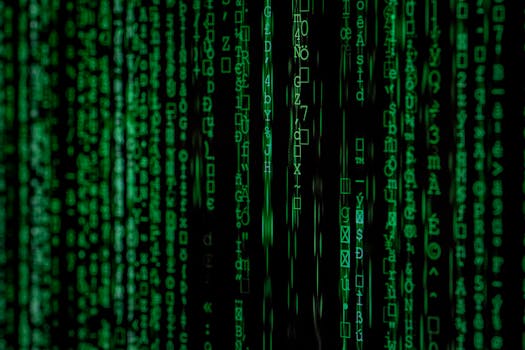
Unveiling the Magic: A Beginner's Guide to Programming
The world of programming, often seen as an arcane realm of cryptic codes and complex algorithms, is actually a fascinating and rewarding journey waiting to be explored. This guide aims to demystify the world of programming, providing a stepping stone for beginners eager to embark on this exciting adventure.
Why Learn to Program?
The world runs on code. From the apps on your phone to the websites you browse, from the software used in banks to the systems controlling traffic lights, programming is the language that powers our modern world. Learning to program equips you with:
- Problem-solving skills: Programming encourages a logical and structured approach to problem-solving, making you a more efficient thinker in all aspects of life.
- Creativity and innovation: Programming allows you to create your own solutions, bringing your ideas to life and crafting unique tools and experiences.
- Career opportunities: The demand for skilled programmers continues to grow, offering a wide range of rewarding and high-paying career options.
- Understanding the digital world: Programming empowers you to understand how technology works and to leverage it for personal and professional gains.
Choosing Your First Language:
The first step is choosing a programming language. The choice depends on your interests and goals:
- For web development: HTML, CSS, JavaScript are essential.
- For mobile apps: Swift (iOS) or Java/Kotlin (Android) are popular choices.
- For data analysis: Python, R, or SQL are widely used.
- For game development: C++, C#, or Unity are popular.
Learning the Fundamentals:
Regardless of your chosen language, there are fundamental concepts shared across all programming:
1. Variables: Think of variables as containers holding data. They can store numbers, text, or other information.
Example (Python):
age = 25
name = "Alice"
2. Data Types: Different types of data are handled differently. Common data types include integers, floats (decimal numbers), strings (text), and booleans (True/False).
Example (Python):
age = 25 # Integer
height = 1.75 # Float
name = "Alice" # String
is_student = True # Boolean
3. Operators: Operators perform calculations and comparisons. Common operators include:
- Arithmetic operators: +, -, *, /, %, //
- Comparison operators: ==, !=, >, <, >=, <=
- Logical operators: and, or, not
Example (Python):
result = 10 + 5 # Addition
is_equal = 5 == 5 # Comparison
4. Control Flow: This refers to how your program executes commands. Key concepts include:
- Conditional statements (if, else, elif): These execute code based on specific conditions.
Example (Python):
if age >= 18:
print("You are an adult")
else:
print("You are not yet an adult")
- Loops (for, while): These repeat blocks of code a specified number of times or until a certain condition is met.
Example (Python):
for i in range(5):
print(i)
count = 0
while count < 5:
print(count)
count += 1
5. Functions: Functions are blocks of reusable code that perform specific tasks. They make your programs organized and efficient.
Example (Python):
def greet(name):
print("Hello, " + name + "!")
greet("Alice")
6. Debugging: Programming errors (bugs) are inevitable. Learning to debug is essential for finding and fixing errors.
7. Libraries: Libraries are collections of pre-written code that provide useful functions and tools, saving you time and effort.
Example (Python):
import random
random_number = random.randint(1, 10)
print(random_number)
Learning Resources:
- Online courses: Codecademy, Khan Academy, Coursera, Udemy offer structured and interactive learning experiences.
- Tutorials and documentation: W3Schools, GeeksforGeeks, official language documentation provide detailed explanations and examples.
- Books: "Python Crash Course", "Head First Java", "Eloquent JavaScript" are highly recommended for beginners.
- Practice projects: Build simple projects to solidify your understanding and gain practical experience.
- Online communities: Reddit, Stack Overflow, forums offer a platform to ask questions and connect with other programmers.
Practice, Practice, Practice:
Programming is a skill that requires practice. The more you code, the more comfortable you will become with the concepts and the faster you will learn. Start with simple projects and gradually move to more complex ones.
Don't Give Up:
Programming can be challenging, but it's incredibly rewarding. Don't get discouraged by mistakes; they are a part of the learning process. Embrace the challenges, seek help when needed, and enjoy the journey of becoming a programmer.
Beyond the Basics:
As you progress, you can delve into advanced programming concepts such as:
- Object-oriented programming (OOP): This paradigm focuses on creating reusable and modular code using objects.
- Data structures and algorithms: These provide efficient ways to store and process data.
- Web frameworks (e.g., Django, Flask): These simplify web development by providing pre-built components and structures.
- Mobile development frameworks (e.g., React Native, Flutter): These allow you to create cross-platform apps for both iOS and Android.
- Database management: SQL and NoSQL databases are essential for storing and managing large amounts of data.
The Journey Begins:
Learning to program is an investment in your future. It unlocks a world of opportunities and empowers you to shape the digital landscape. By taking the first step, you're setting yourself on a path of constant learning and discovery. So, embrace the challenge, explore the vast world of programming, and enjoy the rewarding journey ahead.

Posting Komentar